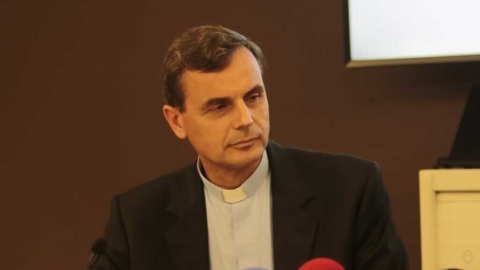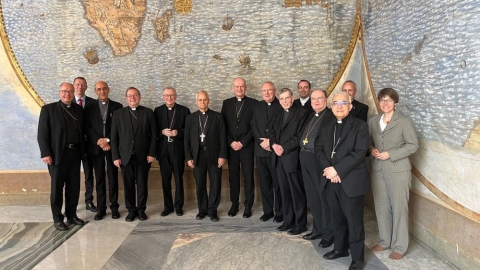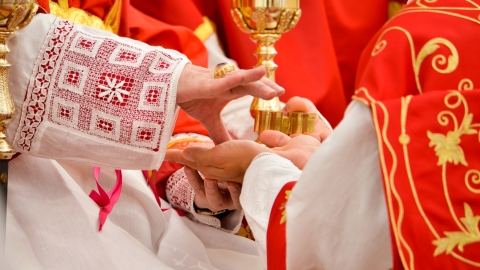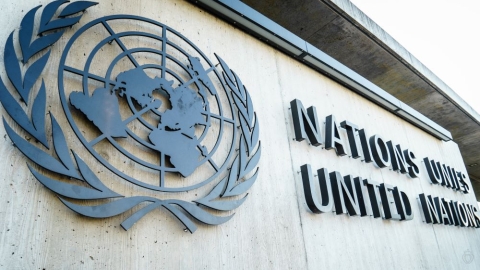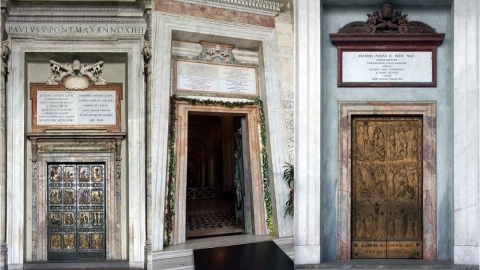Strong Disagreements Within the Pontifical Academy for Life

Cardinal Willem Jacobus Eijk
Two members of the Pontifical Academy for Life have come under fire for publicly calling for support for assisted suicide as a tactic to prevent the legalization of voluntary euthanasia in Italy.
Jesuit Fr. Carlo Casalone, professor of moral theology at the Pontifical Gregorian University, proposed such an approach in an article published on January 15 in the Jesuit periodical La Civiltà Cattolica – a journal whose articles are approved by the Secretariat of State.
Fr. Casalone suggested invoking the principle of “imperfect laws,” according to which, in certain cases, it is licit for a Catholic politician to vote in favor of a law which restricts an already existing law which is contrary to the teaching of the Church, for example by voting to reduce the legal abortion period from 24 to 16 weeks.
He felt that this principle could apply to the promotion of assisted suicide, considered a lesser evil, in order to prevent the greater evil which is voluntary euthanasia.
His view was supported by Marie-Jo Thiel, professor of ethics at the University of Strasbourg and member of the Academy, who wrote in Le Monde on January 31 that Fr. Casalone's suggestion was a sign of a wider change in the position of the Church.
Finally, Msgr. Renzo Pegoraro, President of the Academy, declared that, of the two possibilities, “assisted suicide is the one that most limits abuse because it would be accompanied by four strict conditions: the person who asks for help must be conscious and able to express himself freely, have an incurable disease, be experiencing unbearable pain, and be dependent on a life-sustaining treatment such as a ventilator.”
The Constitutional Court legalized assisted suicide under very specific and well-defined conditions in 2019, which influenced pro-euthanasia activists to call for a national referendum on voluntary euthanasia.
Their campaign culminated this February in a petition with 1.2 million signatures from euthanasia advocates, well in excess of the 500,000 needed to organize a popular vote to change an existing law, was filed in constitutional court.
The court rejected it on February 15, arguing that a change in Italian criminal law to allow voluntary euthanasia would not guarantee “the constitutionally necessary minimum protection of human life in general, and of weak and vulnerable in particular.”
Cardinal Willem Eijk, a physician and member of the Academy, strongly rejected the support of the two members. The Archbishop of Utrecht argued that there is “no significant moral difference” between physician-assisted suicide and voluntary euthanasia, “neither on the side of the patient nor on that of the doctor.” Both bear “the same moral responsibility” in the execution of a murder.
The cardinal told the National Catholic Register (NCR) that the argument that allowing assisted suicide legislation could prevent euthanasia legislation “makes no sense.” “We would simply and automatically pave the way for the legalization of euthanasia, because the ethical difference between the two is not significant,” he added.
Cardinal Eijk also rejected the “imperfect laws” argument in this case. He pointed out that the principle was raised by John Paul II in Evangelium Vitae (73) in the context of the restriction of abortion, and he specified that “the passage of a law by which medically assisted suicide is authorized does not in any way imply a restriction on the legalization of euthanasia.”
Another member of the Academy, Jean-Marie Le Méné, president of the Lejeune Foundation, also reacted. He criticized his two colleagues in a commentary published in Le Figaro, stating that “it is one thing for people to express their personal opinion, it is quite another to use their positions to officially commit the Pontifical Academy for the life.”
He also mentioned the application of no. 73 of Evangelium Vitae to this case. According to him, it would be, “deliberately enacting a bad law to avoid another future law, which would be worse.” But “the law it is meant to avoid will eventually pass even faster,” he warned.
Mr. Le Méné clarified that the members of the Academy are bound by its statutes, in particular Article 5 §5 (b), which stipulates that academicians must “undertake to promote and defend the principles relating to the value of life and the dignity of the human person, interpreted in conformity with the magisterium of the Church.”
Now, he added, supporting legislation in favor of assisted suicide “is a deviation” from this prescription. Asked by NCR about this violation of its statutes, the Academy did not give an answer.
(Sources : NCR/Le Monde/Le Figaro/La Civilta Cattolica – FSSPX.Actualités)
